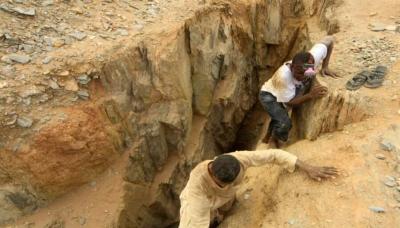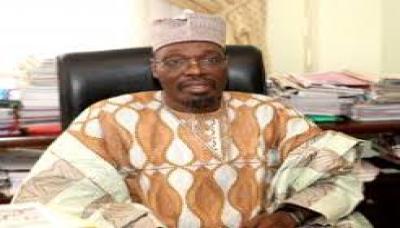
Ghanaian Police Rescue 76 Youths…
Ghanaian police, with help from Interpol and Nigerian authorities, have rescued 76 young men trafficked to Nigeria under a fake recruitment scheme promising football deals and jobs, arresting seven suspects and launching efforts to repatriate the victims.

Mali Adopts Landmark Law to…
Mali has passed a landmark law to protect stateless people by providing a path to nationality and access to essential services, earning praise from the UNHCR as a major human rights achievement.

Türkiye Offers Condolences Following Deadly…
Türkiye has extended condolences to Sudan after a gold mine collapse in Nile River state killed at least 50 people, urging swift rescue efforts for those still trapped.

Vin Diesel Says Fast &…
Vin Diesel has confirmed that Fast & Furious 11, the final film in the franchise, will be released in April 2027 and will feature the return of Paul Walker’s character Brian O’Conner.

Australian Jury Deliberates in Deadly…
An Australian jury has retired to deliberate the fate of Erin Patterson, accused of murdering three relatives with a mushroom-laced meal, as prosecutors allege deliberate poisoning and deception while the defence claims it was a tragic accident.

Mounting Pressure on Liberia to…
Liberians are intensifying calls for justice after the death of former warlord Prince Johnson, urging the Boakai administration to fast-track the War and Economic Crimes Court before more perpetrators evade accountability.

Cameroon’s Ex-Minister Tchiroma to Challenge…
Former Biya ally Issa Tchiroma Bakary has resigned from government and declared his presidential candidacy, promising reforms and an end to Biya's 42-year rule, sparking debate over his credibility as a change agent.

Ghana Moves Forward with Debt…
Ghana’s parliament has approved a $2.8 billion debt restructuring deal with bilateral creditors to stabilise the economy and reduce debt ratios following its 2022 default.

Trump Applauds NATO Spending Deal
Former US President Donald Trump praised NATO's new 5?fence spending pledge at the Hague summit but stirred concern by offering an unclear stance on the alliance’s mutual defence clause, Article 5.

Nairobi Braces for Memorial Protest…
Nairobi saw heightened security with razor wire and road closures ahead of a peaceful Gen Z-led memorial protest demanding justice for youth killed during the 2024 demonstrations, sparking public criticism over excessive police measures.
Top Accolade – Your Daily Source for Trusted UK & Global News
Welcome to Top Accolade, your destination for fast, clear, and reliable news. Whether you're at home or on the go, we bring you Top Accolade News stories that matter, all in one place. No fluff, just facts that keep you informed.
Local News Headlines in UK – Real Stories, Real Impact
Stay related to what's happening around you. Our Local News Headlines in UK section covers community updates, public interest stories, and events that shape daily life straight from trusted sources across the country.
Today International News in UK – Global Stories That Matter
From politics to world events, our Today International News in UK keeps you aware of major happenings worldwide. We bring you important developments with simple reporting that’s easy to understand and follow.
Latest Global News Updates – Timely and Clear
Get the world headlines and never miss out. Our Latest Global News Updates are the right reporting about what is really happening around the world but in a straightforward manner without all in-between efficiencies that waste your time.
Latest Sports News in the UK – Scores, Highlights & More
Love sports? Our Latest Sports News in UK brings all the action in football, cricket, tennis and more. Be updated with new news and game outcomes in the world of sports.
Top Accolade: Where clear news meets trusted reporting. We bring facts first, so you always stay informed, always.










